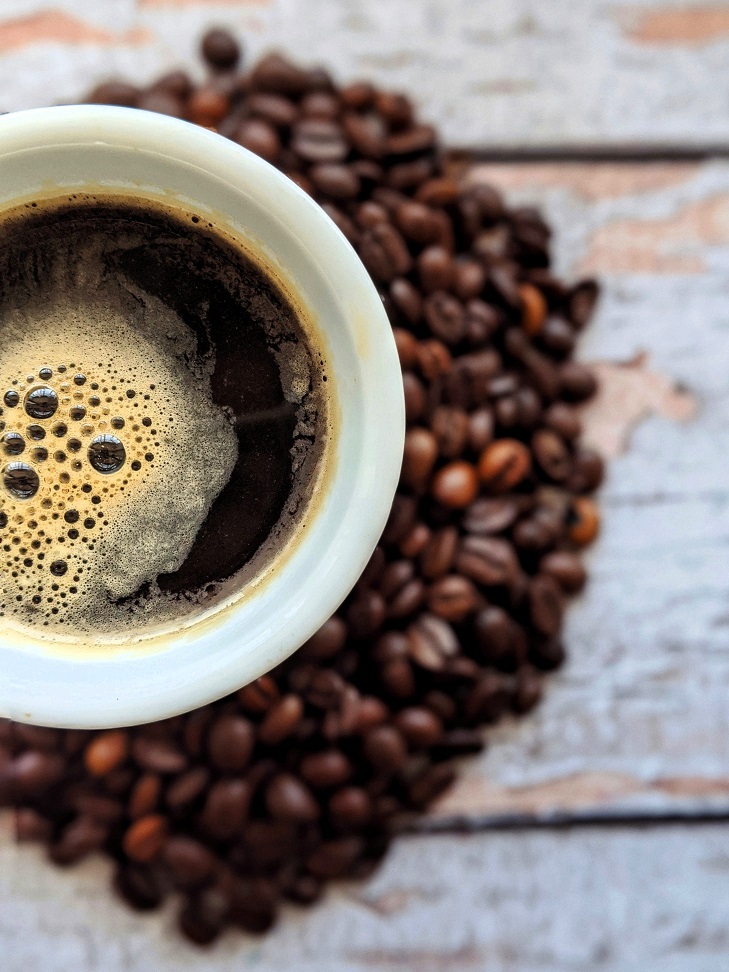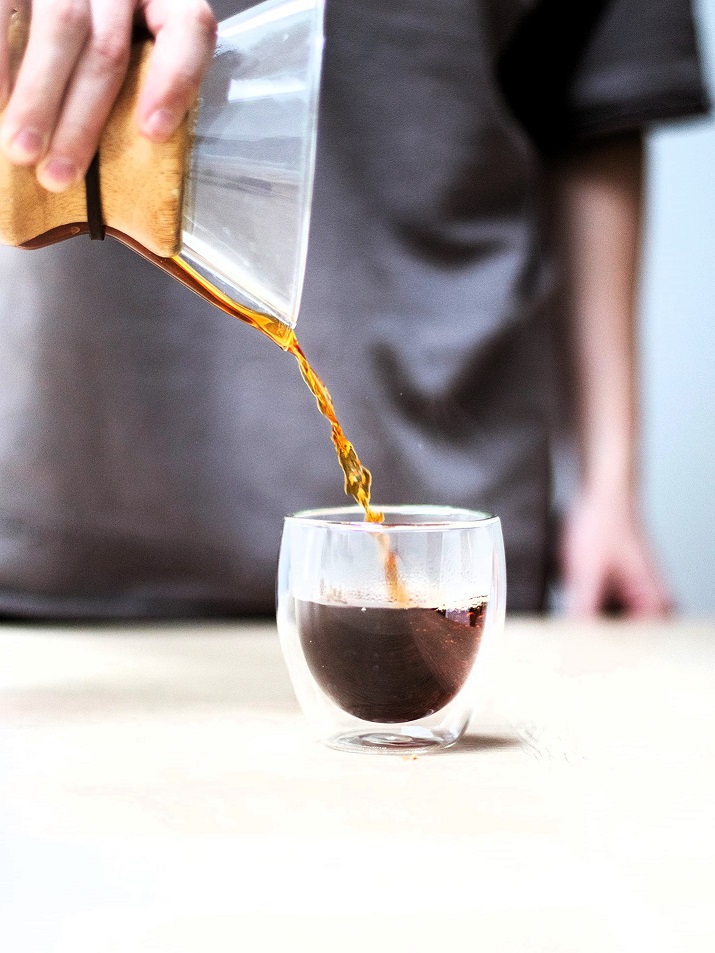Last Updated on March 10, 2025 by Karen
Wondering if black coffee is keto-friendly? Discover how to enjoy coffee on a keto diet, including tips on how it fits into your low-carb lifestyle, and whether it helps maintain ketosis.

If you’re following a ketogenic diet, you may be wondering, “Is black coffee keto-friendly?” The short answer is yes, black coffee is not only keto-friendly but can also be a great addition to your daily routine. In this article, we’ll explore the benefits of black coffee on a keto diet, how it fits into a low-carb lifestyle, and whether or not you need to modify your coffee habits while on keto.
Other related posts you’ll like:
Can You Have Coffee on a Keto Reboot?
Complete Guide to Keto-Friendly Coffee Drinks
What is the Keto Diet?
The keto diet is a low-carb, high-fat diet that focuses on pushing your body into a state of ketosis. This metabolic state encourages your body to burn fat for fuel instead of carbohydrates. To stay in ketosis, it’s essential to maintain low daily carb intake, typically between 20 to 50 grams of carbs per day.
Black Coffee and Keto: The Perfect Pair
Black coffee is the ideal beverage for anyone on a keto diet. Here’s why:
Zero Carbs: One of the primary concerns when choosing foods and beverages on the ketogenic diet is the carb content. Black coffee, whether brewed from beans or made in a French press, contains no carbohydrates. This makes it a perfect choice for anyone who needs to keep their daily carb count low while still enjoying a warm beverage.
Boosts Metabolism and Fat Burning: The caffeine in black coffee stimulates the central nervous system, which can enhance fat burning. For keto dieters, this is particularly beneficial, as it can help accelerate the process of ketosis. Many keto enthusiasts drink coffee as part of their morning routine to jumpstart fat metabolism and improve focus.
Improves Mental Clarity: One of the common benefits people notice when starting a ketogenic diet is improved mental clarity. Black coffee on a keto diet can enhance these effects due to its caffeine content, which can improve focus and mental alertness while you’re in ketosis.
Contains Antioxidants: Coffee is rich in antioxidants, which are beneficial for overall health. Drinking black coffee can support your keto lifestyle by providing a natural source of antioxidants to combat oxidative stress and inflammation in the body.

Is Black Coffee Better Than Coffee with Cream on Keto?
While black coffee is keto-friendly, you might be wondering whether it’s okay to add cream or other keto-friendly additives to your coffee. The answer is yes—adding heavy cream to your coffee is also keto-approved, as it’s high in fat and low in carbohydrates. However, black coffee is the purest and lowest-carb option.
If you prefer a creamier beverage, you can experiment with unsweetened almond milk, coconut milk, or heavy cream. Just be mindful of the carb count in any additives. For example, adding sugar or sweetened creamers to your coffee can quickly push you out of ketosis. Stick to low-carb or no-carb options if you’re looking to maintain ketosis.
How to Make Keto-Friendly Coffee
If you’re looking to enhance your keto coffee experience, consider these tips:
Bulletproof Coffee: A popular keto-friendly option is bulletproof coffee. This drink combines black coffee with grass-fed butter and MCT oil (medium-chain triglycerides) for a high-fat, low-carb beverage that boosts energy and promotes ketosis.
Keto-Friendly Sweeteners: If you have a sweet tooth but don’t want to risk spiking your blood sugar, consider using keto-friendly sweeteners like stevia or erythritol. These sweeteners are low in carbs and won’t knock you out of ketosis.
Flavored Coffee: You can also make flavored keto coffee at home by adding cinnamon, vanilla extract, or cocoa powder. These additions are low in carbs and can provide an extra layer of flavor to your morning brew.

Health Benefits of Drinking Black Coffee on Keto
Increased Fat Oxidation: Drinking black coffee on a keto diet can help improve fat oxidation by stimulating the release of fatty acids from fat stores, helping you burn more fat as fuel.
Enhanced Workout Performance: The caffeine in black coffee can improve physical performance during workouts. Keto dieters often use black coffee as a pre-workout drink to boost energy, focus, and endurance during exercise.
Appetite Suppression: Many people on a keto diet report reduced hunger and cravings, and drinking black coffee can further enhance appetite suppression. Caffeine naturally suppresses appetite, which can be beneficial for those looking to manage their food intake.
Promotes Mental Clarity: Keto coffee helps sharpen your focus and improve cognitive function. With no sugar crashes or energy dips, it’s an excellent drink to keep you alert and productive throughout the day.
Is Black Coffee Suitable for All Keto Dieters?
While black coffee is generally considered keto-friendly, it’s important to listen to your body. Some people may experience stomach irritation or jitteriness from the caffeine in coffee, especially if they’re sensitive to stimulants. If this happens, consider reducing the amount of coffee you drink or switching to decaffeinated options.
What Are the Best Keto Sweeteners for Coffee?
While traditional sugar is a no-go due to its high-carb content, there are several keto-friendly sweeteners that are perfect for sweetening your coffee without kicking you out of ketosis. Here’s a breakdown of the best keto sweeteners for coffee to keep your coffee experience both delicious and keto-approved.
1. Stevia
Stevia is one of the most popular keto sweeteners and is naturally derived from the leaves of the Stevia rebaudiana plant. It’s incredibly sweet (often 50-300 times sweeter than sugar) and has zero carbs, making it an ideal choice for anyone on a ketogenic diet.
Benefits:
- Zero carbs and calories: Perfect for those keeping their carb intake low.
- Natural: Stevia is plant-based and doesn’t contain artificial chemicals.
- No glycemic impact: Doesn’t spike blood sugar or insulin levels.
How to use it in coffee: Stevia is available in both liquid and powdered forms. Just a few drops of liquid stevia or a small sprinkle of powdered stevia will sweeten your coffee without adding any carbs.
2. Erythritol
Erythritol is a popular sugar alcohol that is commonly used in keto-friendly baking and beverages. It’s about 60-70% as sweet as sugar but contains almost zero calories and no carbs. Erythritol is also known for having a clean, sugar-like taste without any aftertaste.
Benefits:
- Low glycemic index: Erythritol doesn’t affect blood sugar or insulin levels.
- No digestive issues for most people: Unlike some other sugar alcohols, erythritol is usually well-tolerated and doesn’t cause bloating or digestive discomfort.
- Tastes like sugar: Its sweetness is very similar to regular sugar, making it a great option for coffee.
How to use it in coffee: Erythritol comes in granulated or powdered forms, making it easy to dissolve in hot coffee. It’s perfect for those who want a more traditional sweetness in their coffee.
3. Monk Fruit Sweetener
Monk fruit is a natural sweetener derived from the monk fruit, a small green gourd native to Southeast Asia. It’s zero-calorie and zero-carb, making it an excellent keto option. Monk fruit sweetener is typically combined with other low-carb sweeteners like erythritol to balance out its intense sweetness, which is up to 200 times sweeter than sugar.
Benefits:
- Zero carbs and calories: Ideal for keeping your coffee keto-friendly.
- No aftertaste: Monk fruit sweetener has a clean, pleasant taste with no bitter aftertaste like some artificial sweeteners.
- Natural: Made from the fruit of the monk fruit plant, it’s a great alternative for those who prefer natural sweeteners.
How to use it in coffee: Monk fruit sweetener is available in liquid, granulated, and powdered forms. You only need a tiny amount due to its intense sweetness, so start with just a few drops or a pinch and adjust to taste.

4. Allulose
Allulose is a relatively new sweetener that has gained popularity among keto enthusiasts. It’s a rare sugar that is found in small quantities in certain fruits like figs and raisins. Despite being a sugar, allulose has almost no calories or carbs and doesn’t raise blood sugar or insulin levels.
Benefits:
- Zero calories and carbs: Allulose provides sweetness without adding any significant carbs.
- Sugar-like taste: Allulose tastes very similar to regular sugar and has no aftertaste.
- Digestive-friendly: Unlike some sugar alcohols, allulose is generally well-tolerated and doesn’t cause digestive issues.
How to use it in coffee: Allulose comes in granular or liquid form, and it dissolves well in both hot and cold beverages. Its sugar-like taste makes it a great choice for those looking for a natural, keto-friendly sweetener.
5. Xylitol
Xylitol is another sugar alcohol that is frequently used in keto recipes. While it does contain some carbs (about 4 grams per teaspoon), it has a low glycemic index, meaning it doesn’t cause a significant spike in blood sugar levels when consumed in moderation.
Benefits:
- Low glycemic index: Ideal for those who want to avoid blood sugar spikes.
- Tastes like sugar: Xylitol has a sweet flavor similar to table sugar, making it perfect for coffee.
- Dental benefits: Xylitol is known to promote oral health by reducing the risk of cavities.
How to use it in coffee: Xylitol is available in granular or powdered form and dissolves easily in hot coffee. It’s sweeter than sugar, so use a smaller amount to avoid over-sweetening.
6. Sucralose (Liquid)
Sucralose is an artificial sweetener that is many times sweeter than sugar but has zero calories and zero carbs. The most common brand of sucralose is Splenda, which is widely available in liquid or granular forms. While it’s synthetic, it doesn’t affect blood sugar levels, making it suitable for keto dieters.
Benefits:
- Zero carbs and calories: Sucralose doesn’t contribute any significant carbs.
- Very sweet: A little goes a long way, so it’s easy to control sweetness levels.
How to use it in coffee: Sucralose is available in liquid form for coffee and other beverages, making it super easy to add a small amount to sweeten your drink.
What to Avoid When Using Sweetener For Your Keto Coffee?
When choosing a sweetener for your coffee on a keto diet, it’s important to avoid the following:
Regular sugar: High in carbs and will spike blood sugar levels, kicking you out of ketosis.
Artificial sweeteners like aspartame and saccharin: These may not be well-tolerated by some people and can leave an aftertaste.
Honey and agave: Both are high in sugars and carbs, making them unsuitable for keto.
Experiment with different sweeteners to find your perfect match, and enjoy a delicious, guilt-free cup of coffee that supports your keto goals!

Final Thoughts: Is Black Coffee Keto-Friendly?
Yes, black coffee is keto-friendly. Whether you drink it plain or customize it with keto-approved ingredients like heavy cream, MCT oil, or stevia, coffee can be an essential part of your keto diet. As long as you avoid high-carb additives and keep your coffee low-carb, it will help you stay in ketosis and support your low-carb lifestyle.
So, go ahead and enjoy your keto coffee without worry—sip away and boost your energy, metabolism, and mental clarity all while staying true to your keto goals.















